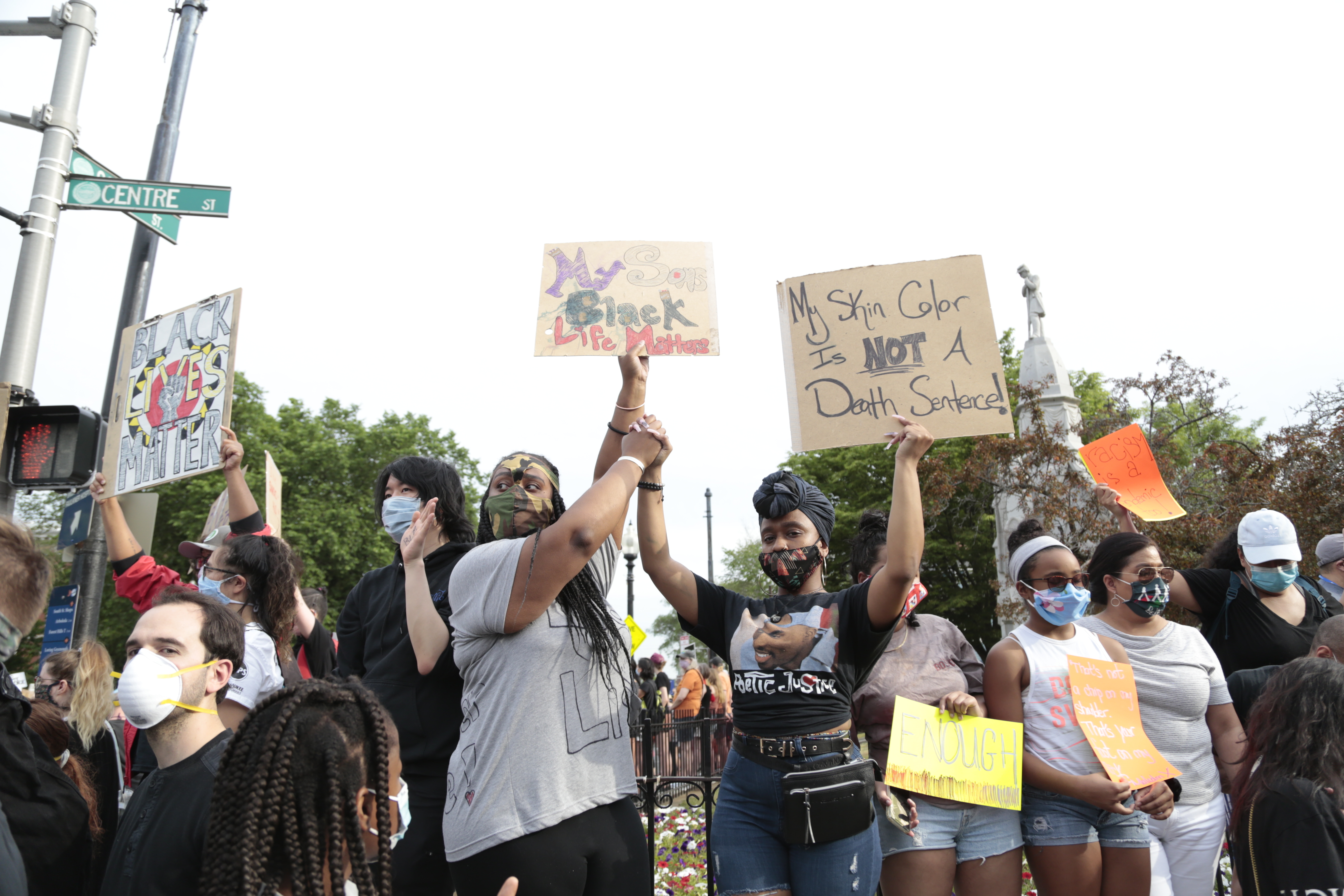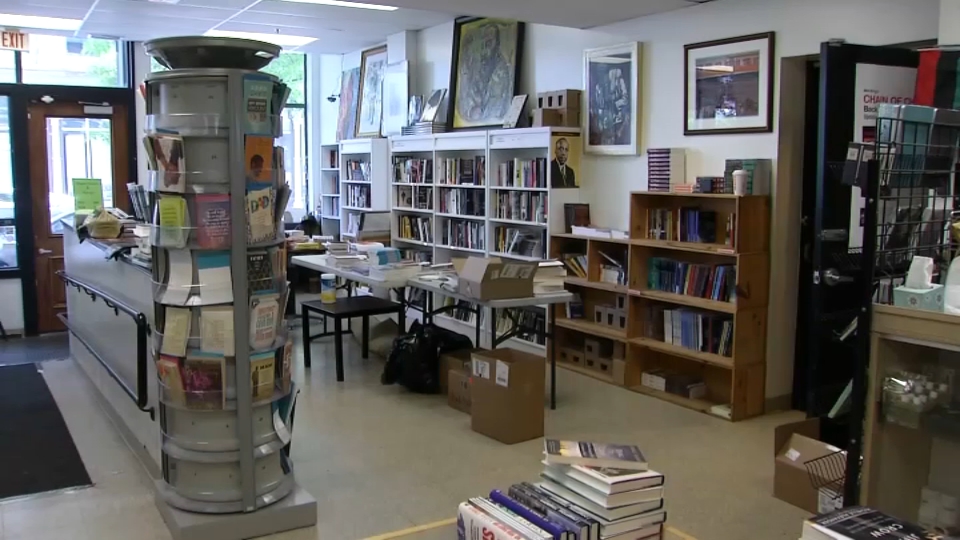Thousands of people continue to protest across Massachusetts, denouncing structural racism and police brutality against black people in the wake of George Floyd's death over two weeks ago.
Activists and concerned citizens at a Black Lives Matter vigil at a West Roxbury rotary Monday shared their stories with NBC10 Boston, like others did in Jamaica Plain on Thursday.
With passing drivers sounding their horns in support, they voiced concerns for their own lives and the lives of their children, and spoke about the need for legislative and structural change in American policing.
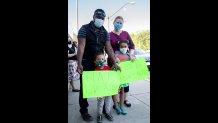
The Onyango family of Mattapan
Aaron: "Every profession has some accountability, you know? They require a certain level of accountability and professionalism. But how come this conduct, that is expected of every other profession, is really not expected of the police regarding brutality or towards individuals, and especially people of color?"
Joy: "It's terrifying, thinking about them getting older. I feel that the police need to be so much less prominent in American life than they are now. There's so many social problems that they're tasked with that don't need to be in their purview at all. We don't need uniformed people with guns handling a lot of these things."
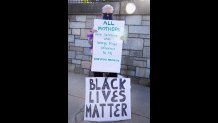
Renee Suchy of Hyde Park
"I have a child who's biracial. She's 22 years old. She's fabulous. I am so proud of her. And as a mother, it's my duty– it's my duty to help protect all children, but especially those that are been marginalized and oppressed."
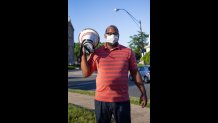
Organizer and former Boston City Councilman Tito Jackson of Roxbury
"Imagine - the English language is over a million words. If you lose your wife, you're a widower. If you lose your husband, you're a widow. If you lose your parents, you are an orphan. What's the word for someone who loses their child? We don't even have a word in the English language for that. Imagine - put yourself in that place. So we act with that urgency. We listen to those -- they're not victims -- we listen to those survivors of this, and we move forward. We legislate. We change policy, and if need be, we change people."
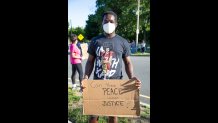
Pascal Opiyo of West Roxbury, via Kenya
"It's scary. I have two daughters and I just want to go home to them every night. When I see them and I see these things happen to black men in America, I think, 'Will I be there to see them grow up and be adults and know their lives?' It's a scary thing. It's very surreal."
"Put yourself in someone else's shoes. See those black men as your sons, your daughters and imagine if that happened to your kid. And then, you know, walk the walk and see like, if that was you would black lives matter to you?"
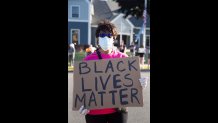
Gail Latimore of Georgia, via Boston
"I'm hoping that we are going to change some hearts and minds by, you know, not only seeing the video of what happens, which was atrocious and unfortunately happens way too often. Often we wonder how many people were injured or killed that didn't get recorded, right? I know from my own experience of seeing how the system operates that it's important to be out here, making a statement with everybody else in solidarity and also trying to, as I said, change hearts and minds. And, you know, hopefully change the system, because it has to be about cultural change."
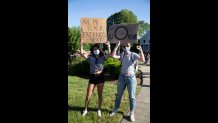
Clarissa Romero and Fanny Fellevik of West Roxbury
Fanny: "This is absolutely B.S. It shouldn't be like this - this is outrageous and this is not how people should be brought up, knowing even anything like that. This is just not okay. So I think we need to educate ourselves and our friends and anyone around us. Like, this can't continue."
Clarissa: "It's time for change and I think our generation is the one that's going to do that. Out of all of them, we have, like, the most influence right now, so people our age especially should be out here when, you know, a lot of people are unemployed with COVID and everything. It only takes, what, 30 minutes to be out here, hold a sign? That makes a huge difference."
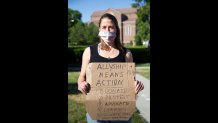
Laura Cowie-Haskell of Roslindale
"Examining my own whiteness and how the modes of whiteness have made me think about the harm that I've done without even knowing it, because whiteness is so invisible and mainstream and we don't get the opportunity to dissect its toxicity all the time. I have a lot, a lot, a lot to learn from people of color."
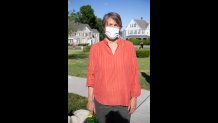
Jill Cowie, of Roslindale
"The time is now for change, and various things are coming together, the energies of this nation are coming together, to see the truth that this is, that we're built on an unjust foundation that's long been cracked and it's time to bring it down and change it."
Watch the footage from Part I of our project:

